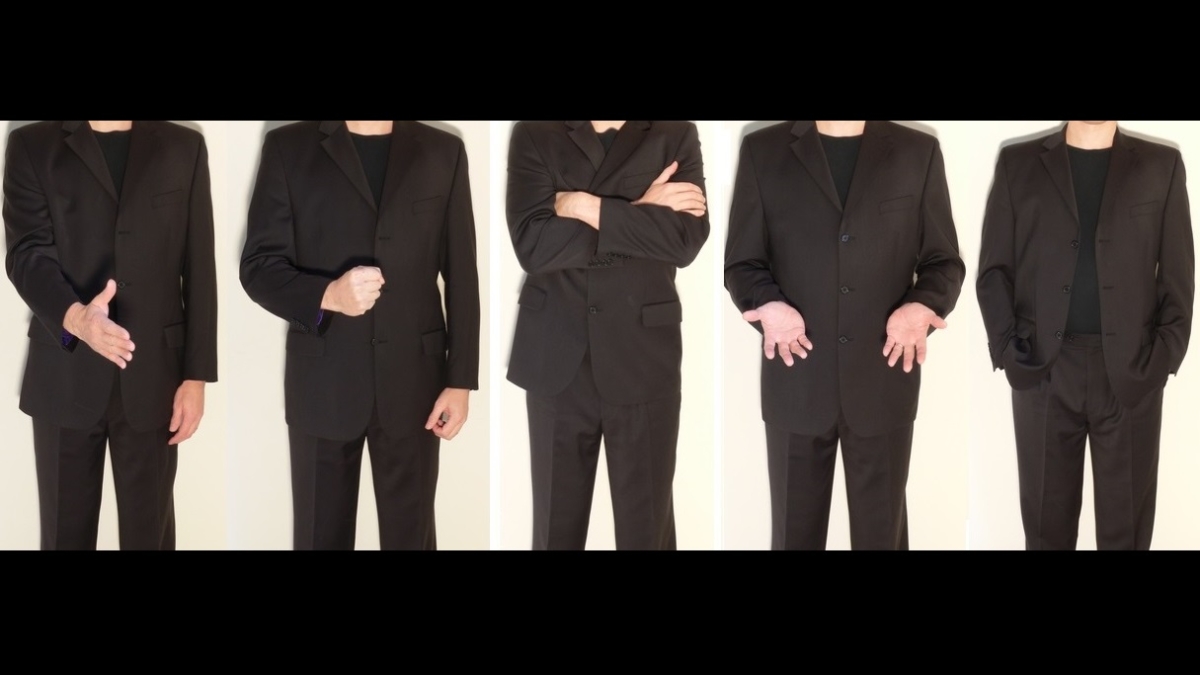You’re watching a political debate on TV and notice one of the candidates beginning to fidget.
The time comes for him to speak and he keeps his eyes trained on the lectern instead of looking directly at the audience.
Aha, you think. He’s lying about something. After all, he’s exhibiting tell-tale signs of deception, right?
Not necessarily, says Nicholas Duran, assistant professor in the School of Social and Behavioral SciencesThe School of Social and Behavioral Sciences is an academic unit of the New College of Interdisciplinary Arts and Sciences at Arizona State University’s West campus. at Arizona State University.
“There really are no tell-tale signs that someone is lying,” he said, for one simple reason: Humans have gotten very good at the art of deception.
“Evolutionarily speaking, people are very good at lying. If it was so easily detected, there would be no point in it.”
Duran studies complex cognitive processes as they are revealed in the continuous processes of movement and language. To put it simply, he looks at how a person’s behaviors during conversation might reflect his or her thought processes.
However, it’s not something that can be done with the naked eye. In order to detect these so-called “micro-behaviors,” a person must be recorded and a researcher must then slow down the recording, going frame-by-frame to detect subtle changes in expression.
That’s why it can be dangerous to assume certain obvious behaviors — such as fidgeting or lack of eye contact — are indicative of lying.
A fellow School of Social and Behavioral Sciences faculty member, lecturer Cynthia Gaffney cautions, “It is a poor habit of interpretation to think that crossed arms always means defiance or direct eye contact means truthfulness. Human behavior and context are far too complex to be reduced to such easy reads. We lose cultural influence as well as individual behavior and quirks when we assume we know what a behavior such as a yawn means.”
According to Duran’s research, a person who is exhibiting behavior like crossed arms or slouching may be doing so because they’re under emotional duress due to something unrelated, and not actually lying at all.
Though you may not be able to tell whether someone is trying to deceive you based on his or her body language alone, you may be able to learn a thing or two by paying close attention to how the person speaks.
As Duran explained, “The better deceivers exhibit fewer verbal repairs and hesitations when they speak. They also probably have greater verbal and nonverbal fluency; greater rhythms of speech and movement.”
For those less skilled at deception, the sheer mental gymnastics required to project truth while maintaining a false reality might manifest in a breakdown of the fluidity or rhythm of their speech and movement; a phenomenon researchers refer to as entropic, or tending toward degradation and chaos.
And considering public speaking is part of their job description, it’s only logical that politicians would be good at it; nothing can be assumed from their smoothness of speech.
So what’s the takeaway?
Both Duran and Gaffney agree that the better you know someone, the easier it is to tell if he or she is lying. (For most people, that means sussing out a politician’s true beliefs is likely next to impossible.) However, thanks to the complexity of the human mind and body, there just isn’t a foolproof method to detect deception. So trust your instincts — but also question them from time to time.
More Arts, humanities and education

‘It all started at ASU’: Football player, theater alum makes the big screen
For filmmaker Ben Fritz, everything is about connection, relationships and overcoming expectations. “It’s about seeing people beyond how they see themselves,” he said. “When you create a space…

Lost languages mean lost cultures
By Alyssa Arns and Kristen LaRue-SandlerWhat if your language disappeared?Over the span of human existence, civilizations have come and gone. For many, the absence of written records means we know…

ASU graduate education programs are again ranked among best
Arizona State University’s Mary Lou Fulton College for Teaching and Learning Innovation continues to be one of the best graduate colleges of education in the United States, according to the…


